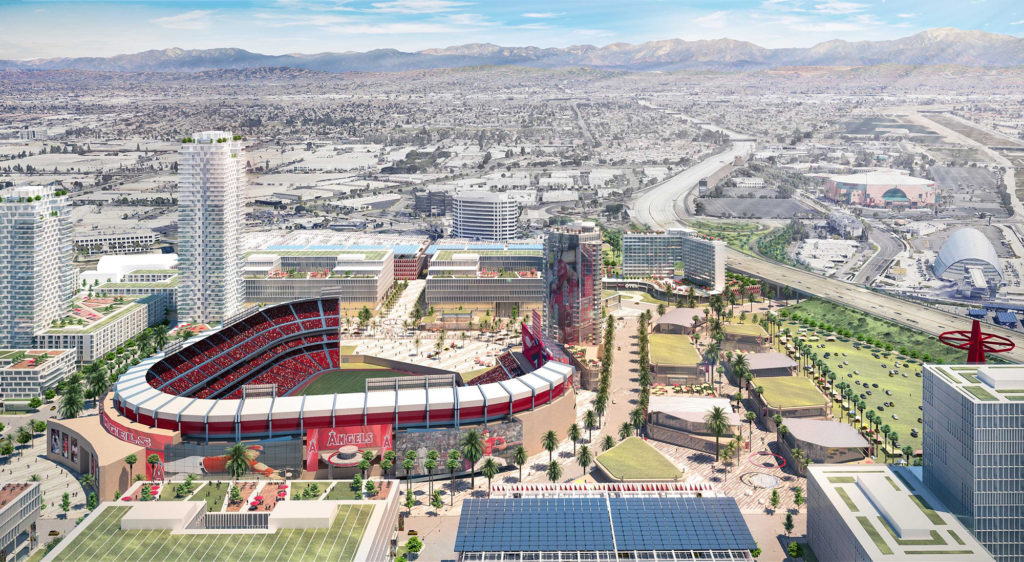
Anaheim Mayor Harry Sidhu has resigned over accusations that the sale of Angel Stadium and surrounding land came under questionable circumstances linking the sale with a million-dollar campaign contribution.
The FBI had been monitoring communications to and from the mayor’s offer under allegations that a tight network of Anaheim businesspeople and politicians were in control of city development and steering approvals for personal gain. In this case, the FBI and the state attorney general is alleging Anaheim Mayor Harry Sidhu spoke of soliciting campaign contributions from the team in exchange for the city’s support of the project. Angels owner Arte Moreno and his investment group were seeking to buy the 20-acre Angel Stadium site and an additional 133 acres comprising 12,500 parking spaces for games and events, and City National Grove of Anaheim, a 1,700-seat theater. The total cost: $150 million in cash and $170 million in community benefits, including affordable housing. The goal was a mixed-use development a la The Battery. Moreno would also have the power to decide whether to build a new ballpark at the site or renovate Angel Stadium.
The allegation is that Sidhu, a Republican, shared confidential information with the Angels in order to facilitate the deal, with the eventual goal the solicitation of a million-dollar reelection campaign.
The resignation was tendered today, effective Tuesday. The Anaheim City Council had already voted to call for Sidhu’s resignation following the release of an affidavit from FBI special agent Brian Adkins alleging Sidhu not only intended to solicit that contribution, but allegedly had subsequently engaged in other criminal offenses, including fraud, theft or bribery, making false statements, obstruction of justice and witness tampering. In that same affidavit, Adkins did not note any wrongdoing from the Angels or that there was any evidence the solicitation actually took place.
The proposed land sale was already facing challenges before the bombshell charges, with the state alleging it did not meet affordable housing guidelines mandated by state law. The California Surplus Land Act requires municipalities selling parcels as surplus must first offer it to qualified affordable-housing developers, who will then be required to set aside a percentage of any new housing units for affordable housing. A tentative settlement would have lightened the affordable-housing guidelines for the Angel Stadium site, with the city paying $96 million to develop affordable guidelines elsewhere in the city. The land sale is on hold until any resolution of the corruption charges, and politically it will be very difficult to untangle the taint of corruption–even if the Angels were not involved–from the land sale and the development of the Angel Stadium site.
RELATED STORIES: Corruption charges may derail Angel Stadium development; Angel Stadium development still facing legal hurdles; Will 2022 see an end to Angel Stadium development standoff?; Anaheim moves forward on Angel Stadium sale; Angels, Anaheim agree to 30-year team commitment; Angels map out proposed development agreement; Angels ballpark plan expected to be unveiled this month; Moreno: No Decision Yet on Replacing or Renovating Angel Stadium; Group Threatening Lawsuit Over Angel Stadium Sale; Anaheim Approves Angel Stadium Sale
